Listening to America’s Black Middle Class
Presidential hopeful Barack Obama is striking a chord among middle-class black voters, notes Boyarsky, who looks into Obama's fundraising successes among that demographic as an entrée into "an African-American political landscape seldom visited by journalists."Sen. Barack Obama’s fundraising among middle-class blacks tells much about them — and about America.
This aspect of the presidential election hasn’t received much attention lately, as an anxious nation awaits the verdicts of two small and atypical states.
In Iowa, blacks comprise just 2.3 percent of the population. In New Hampshire, it’s 1 percent. That’s compared to almost 13 percent for the entire country. (Why can’t important primaries be governed by laws similar to those requiring juries to be at least somewhat representative?)
I got interested in the middle-class contributions while digging into the Obama campaign.
A couple of longtime black politicians told me that the size of Obama contributions from their community was big. “I’ve never seen so many African-Americans with a lot of money,” one of them said. “I didn’t know there was that much wealth.”
The phenomenon is occurring in prosperous black areas across the country. A few months ago, USA Today surveyed political giving in nearly 600 ZIP codes that included a substantial number of African-American households with incomes above the black national median household income of $31,000 a year. Obama received about 70 percent of the contributions.
I looked at an area I know, View Park and Windsor Hills in Los Angeles. This is not the bleak black and Latino L.A. so beloved by filmmakers, television stations and newspapers which immerse themselves almost exclusively in black crime and other tragedies. Big, luxurious homes adorn this hillside several miles northwest of the poor neighborhoods in the South Los Angeles flatlands. View Park and Windsor Hills are 88 percent black, with a median household income of $73,118, the U.S. Census reported, more than the Los Angeles County household total of $51,447. Almost 70 percent of the people living there are families.
The overwhelming number of contributions from there went to Obama, with Hillary Clinton receiving just two, according to the latest tabulation of The Center for Responsive Politics. That’s not surprising. Nor does it mean Hillary Clinton is friendless in the black community. African-American political commentator Earl Ofari Hutchinson wrote in the Huffington Post that Clinton “runs neck and neck with Obama in the race to net the overall votes of blacks. … They are not naïve about Hillary. They know that GOP hardliners are licking their chops at a Hillary candidacy … yet she still seems a far better bet than Obama to beat back the assault.”
What is as interesting as the horse race is the nature of the Obama contributors. Among them in Los Angeles’ View Park and Windsor Hills are a producer, a chief executive officer of a business consulting company, a nationwide bank senior vice president, lawyers and a restaurant owner.
California state Sen. Mark Ridley-Thomas, who is campaigning for Obama, said the Illinois senator’s message resonates strongly with such people. “His vision of hope and morality and basic centrist politics is grounded in a moral sensibility that is hard to argue with,” Ridley-Thomas said.
“It’s how he talks about personal responsibility,” said another Obama supporter, “how we raise our kids, being responsible for our actions. It is a message people long for.”
That was evident last year when Obama spoke at the First African Methodist Episcopal Church, the city’s oldest black church and, with 19,000 members, a center of middle-class black L.A. People who were there said he was repeatedly cheered as he delivered his message of hope and responsibility to a congregation marking the 15th anniversary of the Los Angeles riots.
First AME reaches deep into the black community with programs ranging from rehabilitating prison inmates to fostering business development. The church also does tutoring and college preparatory training. Located at the northern edge of South-Central Los Angeles, it was in the middle of the 1992 fires and violence..
That’s where I spent the first night of the riots, watching members of the congregation join with neighboring Latino apartment dwellers in fighting fires with garden hoses. Just down the street on West Adams Boulevard, young black men battled cops. When I walked toward the fighting, two men from the church grabbed me, turned me around and said, “This is no time for journalistic heroics.” Later on, I snuck back to observe the action.
As First AME and Obama see it, life should be an upward path, with young blacks turning from fighting cops on West Adams Boulevard in favor of the respectability and pious activism of First AME, rising from the poor, crime-heavy flatlands of South L.A. to more peaceful and prosperous neighborhoods in the city or the suburbs or to the affluence of Windsor Hills and View Park.
But the upward path is becoming more difficult. In 2005 the Urban Institute found that “despite some progress during the 1990s, the share of African-Americans joining the middle class in the U.S. has stagnated over the past 20-30 years.”
The stagnation coincides with roadblocks on the upward path — reduced funding for public elementary and secondary schools and public universities and ending affirmative action in higher education.
Removal of roadblocks is the goal shared by First AME members and middle-class blacks around the country. They are, as Obama supporter Ridley-Thomas put it, “politically and economically progressive” but “on moral issues, more conservative.”
Obama’s effort to translate support into a historic presidential victory will be difficult. Hillary Clinton is strong, and her husband, Bill, is popular among blacks. White Iowa is important to Obama’s hopes. If Clinton wins, she’s in great shape. If either John Edwards or Obama wins, the ever-fickle media will conclude she’s doomed.
But, win or lose, Obama and his supporters are showing America a black political landscape seldom visited by journalists. Why, wondered Washington Post columnist Eugene Robinson, an African-American, “do editors, reporters, columnists and television producers keep only two phone numbers on speed dial for use whenever any news breaks concerning a black person?”
Those are, of course, the numbers of the Revs. Jesse Jackson and Al Sharpton. Black America today is much more complex, a mixture of rich, middle class and poor, a subtlety often missed in the sound bites of Jackson, Sharpton and their counterparts around the country.
Your support is crucial…With an uncertain future and a new administration casting doubt on press freedoms, the danger is clear: The truth is at risk.
Now is the time to give. Your tax-deductible support allows us to dig deeper, delivering fearless investigative reporting and analysis that exposes what’s really happening — without compromise.
Stand with our courageous journalists. Donate today to protect a free press, uphold democracy and unearth untold stories.


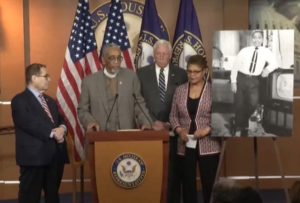
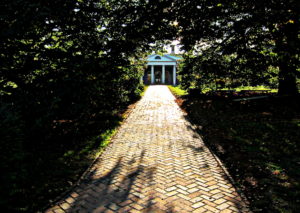
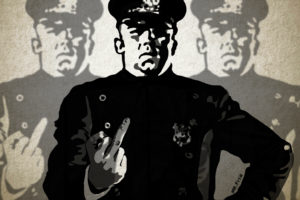
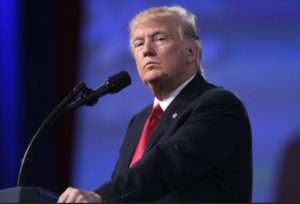
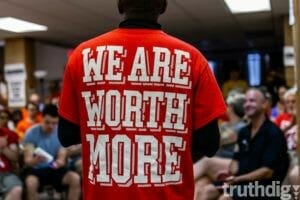


You need to be a supporter to comment.
There are currently no responses to this article.
Be the first to respond.